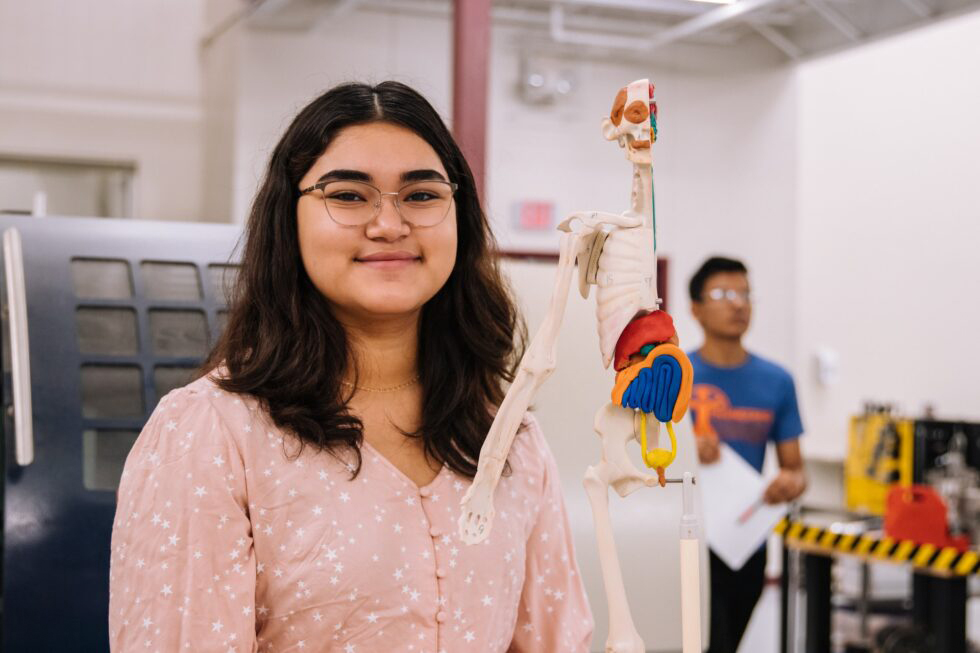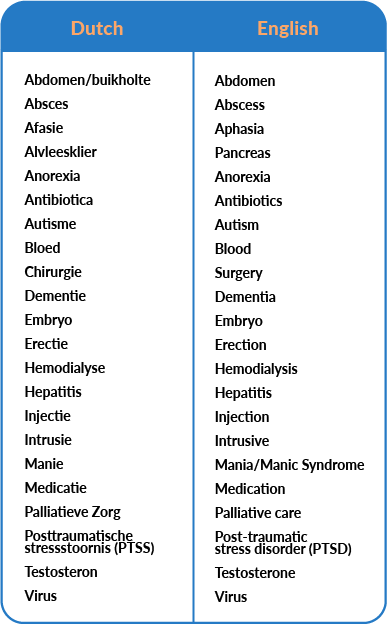Dutch for international healthcare workers
With an increase in migration and mobility across Europe, the likelihood of experiencing language barriers while providing and receiving care is high. Nurses are responsible for providing care to patients regardless of their culture, religion, ethnic background or language. Eliminating language barriers is a crucial step in providing culturally competent and patient-centered care. As a health care professional working in the Netherlands, it is important to have sufficient knowledge of the Dutch language. Hence, the nurse registration (BIG) requires every healthcare professional to master the Dutch language at B1 level, minimum. If you are considering working in the Dutch health care sector, then this blog is of your interest as we know that learning Dutch is not easy. So today we will provide some tips on how to master the language together with some medical lexicon.

Chances are that medical professionals from all over the world can understand each other via the use of common medical terms as many derived from the Greek or Latin. To work in the Dutch healthcare sector, you need to be proficient in Dutch. Any person providing care in the Netherlands must legally be able to communicate in a language that can be understood by the client – so international healthcare professionals working in the Netherlands must learn Dutch. Furthermore, you will gain benefits on the professional level as you will be able to:
- Effectively communicate with clients and their families
- Increase your knowledge of specific medical terminology.
- Maintain good contact with supervisors and colleagues.
- Understand, create, and maintain medical dossiers.
- Perform prognoses.
- Write medical texts.
- Participate in meetings and discussions.

But there are more reasons to study this language. For the most part, you will be fine in your personal life with just English, but a whole new world opens when you understand and speak a bit the language. You will become more familiar with customs and habits and connect with Dutch people more easily. Your circle of friends will grow, and you will strengthen the bonds you have with your colleagues, clients and other relations. People will appreciate your effort and making friends and contacts will be easier.
The Netherlands is both geographically and linguistically situated between England and Germany. Thus, Dutch resembles both English and German. Since you already are familiar with English and medical terminology, you will learn Dutch quicker than non-medical professionals. By learning a new language, you will discover similarities and differences with the languages you know already know and you can use them to your advantage.
Reading children books can be a good starting point to to learn a new language. However, if you consider children’s books to be a bit too dull you should try listening to some Dutch music or watching movies with Dutch subtitles. Listening to Dutch music can help with developing a better understanding of Dutch vocabulary. In many songs and movies, colloquial terms are used which you would hardly come across by looking at your standard language book. A big bonus of listening to music is that it also gives you a lot of repetition, which is always needed when learning new vocabulary.
Moreover, once you have learned the language, mixing up your medical in the language terms is certainly not something you want to do, especially if you are in an emergency or must visit a hospital. Many healthcare professionals in the Netherlands will have a moderate understanding of English but not all your patients may be able to express themselves in English. Fortunately, Dutch has a lot of loan words from English. Below is a list of terms that may look familiar to you.
Dutch – English terms

The healthcare industry is fast paced. As the Netherlands is facing an aging population you will come across all sorts of patients. You may have to deal with people that are battling against diabetes and cancer, develop plasma products or those in need of provide transplant services. As a healthcare professional you are close to the people. Communication is therefore key. If you plan to work in the Dutch healthcare industry, EMTG can help you improve your language skills and cultural knowledge. We will guide you in the process from the moment you begin to learn Dutch until you start working in the Netherlands . Upon completion of the Dutch language course, you will be able to start working at one of the Dutch health care institutions that best matches with your profile, such as home care, hospitals and clinics. Below you can watch a video of one our Spanish nurses speaking Dutch within a few months of arrival in the Netherlands.
Good luck on your new language adventure!
Are you looking to work in Dutch healthcare?
Whether you already live in the Netherlands or are looking to come from abroad, if you do not have sufficient knowledge of the Dutch language and culture then EMTG can help you get started. You can contact us to follow language courses so that within 3 months you will to be allowed to carry out your profession as a Health Care Professional in the Netherlands.